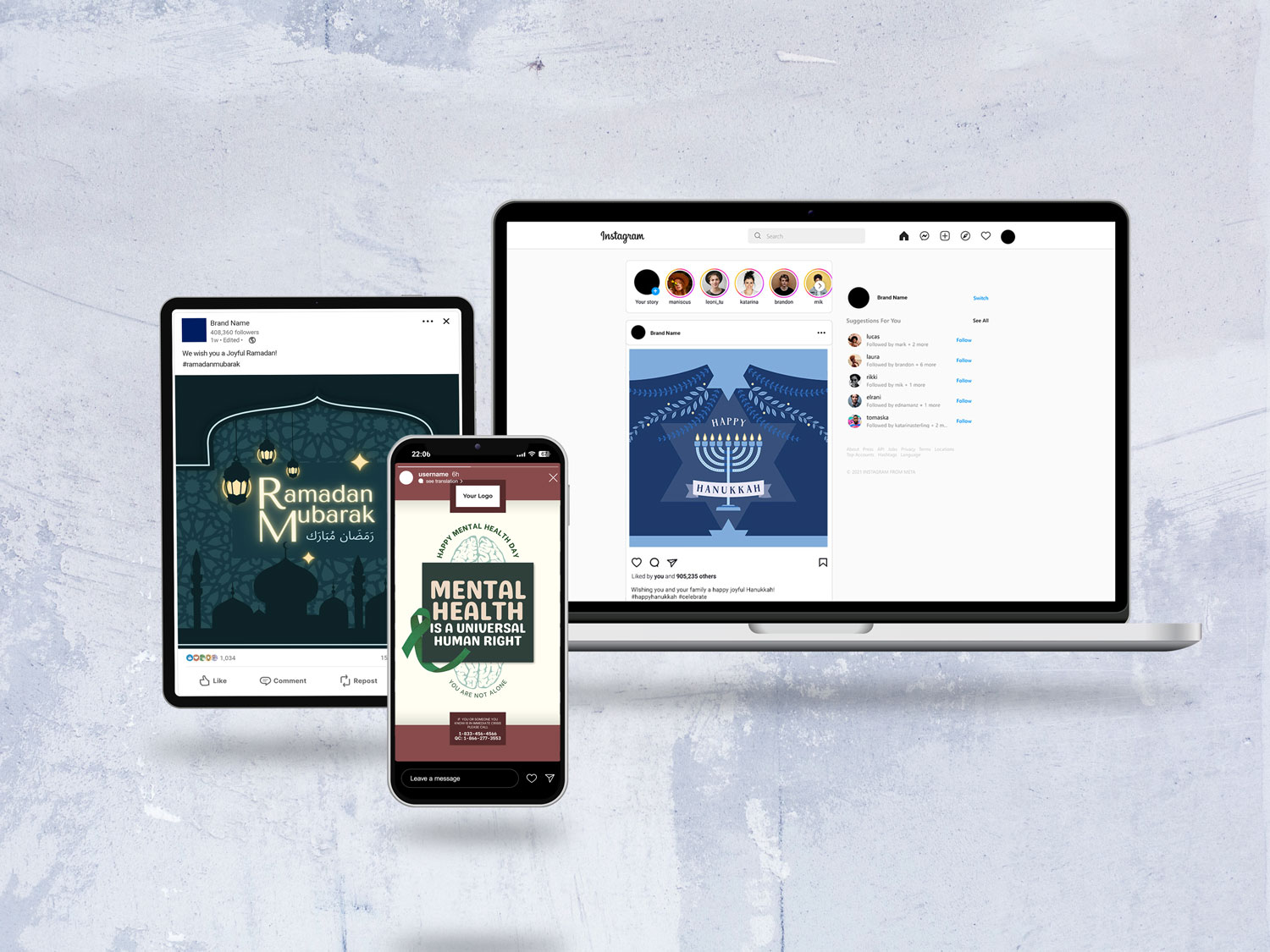Updated January 2024
January is more than just a time for resolutions; it’s the season for contemplating calendars. And as teams grow more diverse, integrating a diversity calendar becomes crucial for navigating the relevant workplace holiday seasons. Empower your colleagues, employees, and clients to embrace inclusivity through this powerful tool — the diversity calendar.
What is a diversity calendar?
The winter holiday season may seem wrapped up, but many other holidays have happened or are swiftly arriving, even if they aren’t observed by legally mandated overtime pay or a greeting card genre. A diversity calendar is what it sounds like: a calendar that lists more than those mainstream, typically Western-centered holidays, throughout the entire year. A tool like this helps organizations and groups to increase their awareness of significant dates in communities outside of their own, and can help to promote inclusion in a variety of ways.
Why use a diversity calendar?
Taking the time to recognize a more diverse calendar of significant events creates a more welcoming environment for all. By opening up your professional calendar to include more than the mainstream, you:
- Normalize more than the dominant cultural events — all year long.
- Open opportunities for a more varied clientele to feel welcome or acknowledged by your organization or business, creating more meaningful connections!
- Make it easier for all of your team to learn about other cultures through significant dates or rituals.
- Foster a sense of belonging, as individuals see their cultural and religious observances acknowledged, contributing to a more inclusive workplace.
Take it beyond cakes and calendars
While it’s not realistic to make everyone on your team observe every single holiday or important cultural ritual, there are ways to empower staff to make the best decisions for themselves and their families’ traditions, without sacrificing your organization’s efficiency or bottom line. For example, consider adjusting your paid time off (PTO) practices or policies to allow more flexibility for those celebrating non-standardized holidays.
Be sure to avoid putting the burden on staff with marginalized identities to do all the labour of acknowledging each of the days that you choose to celebrate at work. Provide briefs about and supplies for celebrating, where relevant. For example, if you choose to start observing the Lunar New Year, avoid relying on your Asian colleague to explain its significance.
And while the word “holiday” typically invokes a sense of celebration or joy, some significant dates may call for other kinds of acknowledgement. For example, in 2021, the Government of Canada officially recognized September 30 as National Day for Truth and Reconciliation, also known as Orange Shirt Day. A party with a cake would be inappropriate to mark the day, but providing staff with orange shirts and a list of resources on how to practice reconciliation can be a good place to start.
Acknowledging the diverse tapestry of holidays doesn’t just enrich workplace culture; it lays the foundation for a harmonious and empowered team. As you strive for inclusivity through your diversity calendar, remember that the smallest gestures can lead to profound impacts. Consider our toolkit for the actionable steps and practical insights you need to seamlessly integrate a diversity calendar into your organization’s fabric.
If you’re a small business or organization looking to embrace diversity and inclusion, but you’re just not sure where to start, our Diversity Calendar Toolkit is your practical first step. No jargon, no complications – just a straightforward guide to understanding and celebrating your diverse teams and clientele. Elevate your team dynamics, innovation and success with this simple, effective tool that makes diversity and inclusion an everyday practice.

